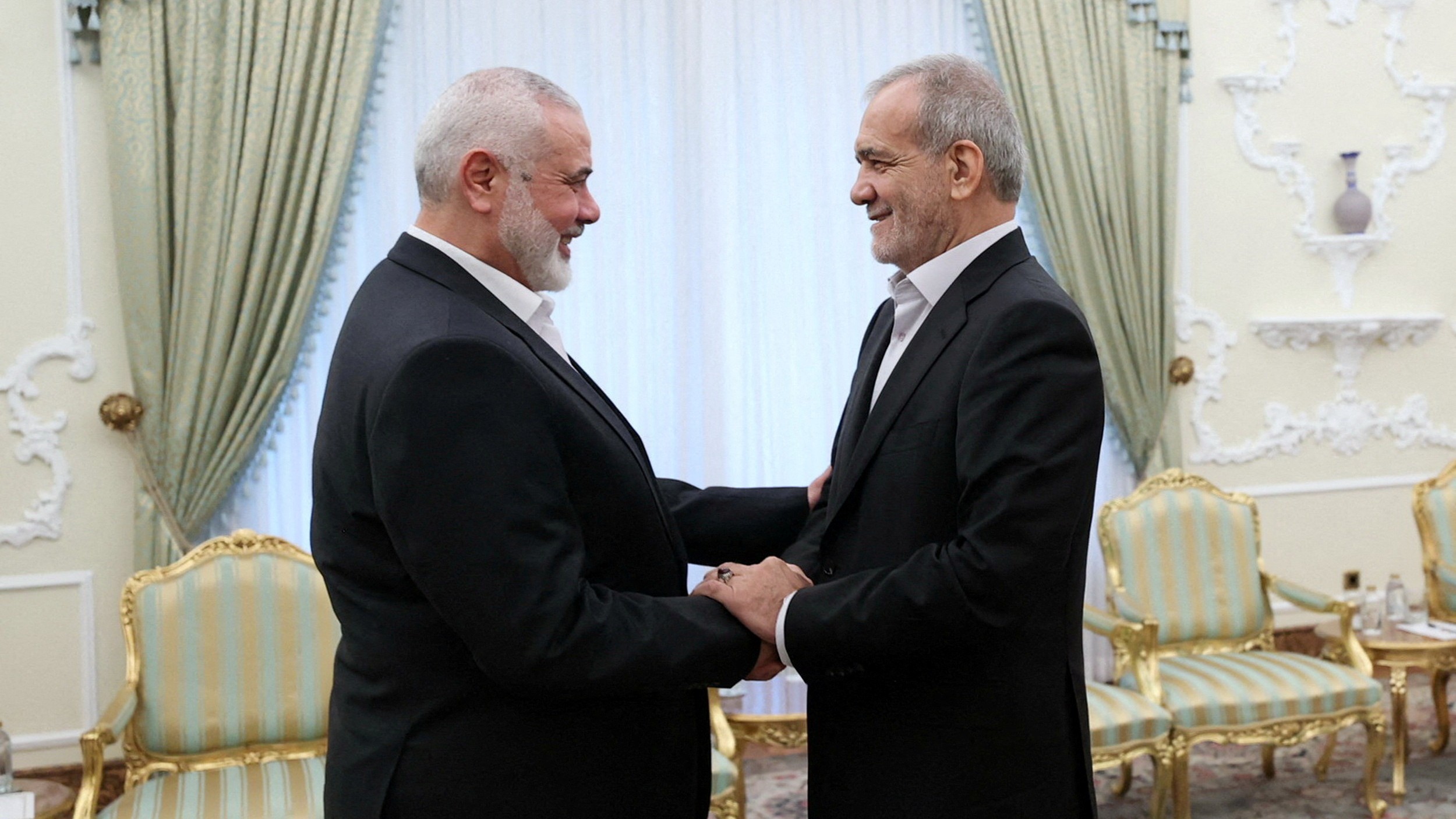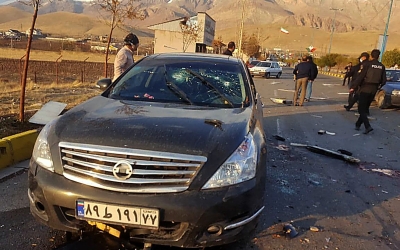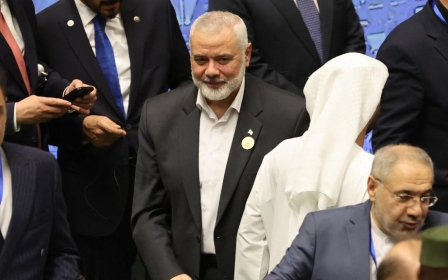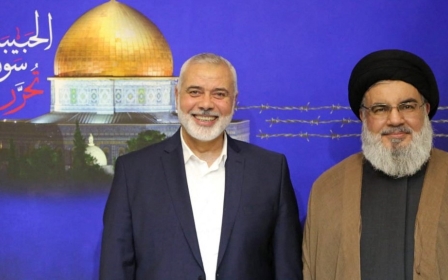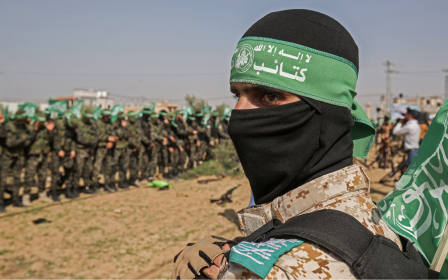Ismail Haniyeh killing piles pressure on embarrassed Republican Guard to defend Iran
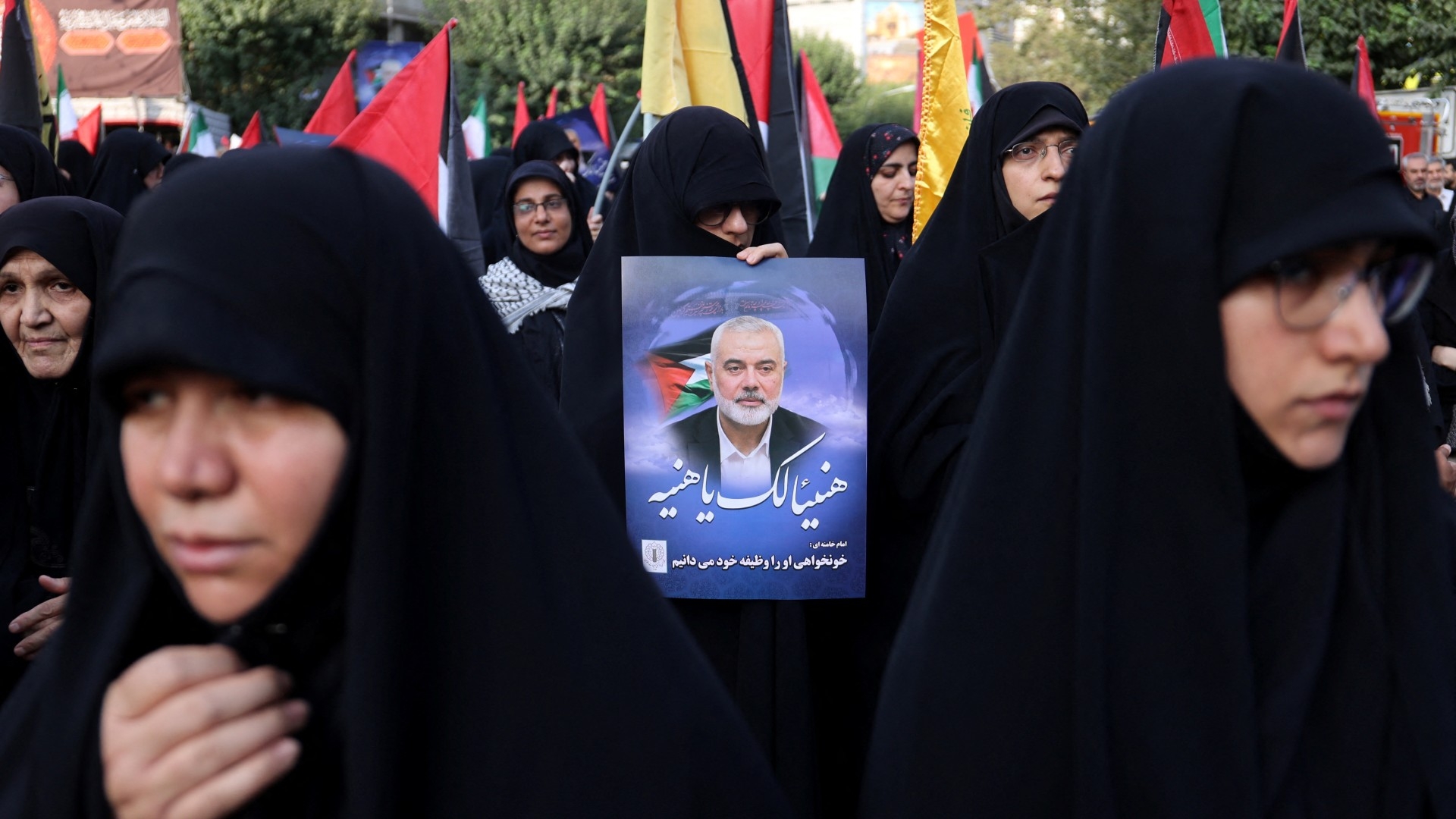
At around 2 am an explosion shook northern Tehran.
It soon became clear that Ismail Haniyeh, the political leader of Hamas, had been assassinated.
Just nine hours previously, Haniyeh had been a key dignitary in the ceremony inaugurating Masoud Pezeshkian as Iran’s new president.
With its Palestinian guest now dead, a shocked Iran declared three days of mourning.
The assassination has piled pressure on Iran’s security establishment, which once again saw Israeli agents infiltrate the country and stage an attack.
New MEE newsletter: Jerusalem Dispatch
Sign up to get the latest insights and analysis on Israel-Palestine, alongside Turkey Unpacked and other MEE newsletters
Just a few days ago, the outgoing intelligence minister, Esmail Khatib, boasted that "the dismantling of Mossad’s network” in Iran was his proudest achievement in office.
This discrepancy has not been lost on Iranian MPs and other political figures.
"The presence of infiltrators in the assassination of Ismail Haniyeh cannot be denied,” said Hossein-Ali Haji Deligani, a member of Iran’s parliament. “We will give Israel a harsher response than promised."
Ali Motahari, a prominent former MP, asked a question on many Iranians’ lips: "How did the Zionists know the whereabouts of Haniyeh as our guest in Tehran?"
Haniyeh’s killing has also raised people’s suspicions that Ebrahim Raisi, Iran’s president who was killed in a helicopter accident in May, actually died at Israel’s hand.
Mohammad Mehdi Esmaili, the culture minister under Raisi, appeared to suggest as much in a post on X.
"Does this tweet confirm the speculations about the assassination of our dear Raisi?" asked ultraconservative activist Davoud Modarresian in response.
A senior conservative source told MEE that Raisi’s whole family believes he was killed by Israel.
Lax security
Popular anger has been turned towards the Islamic Revolutionary Guard Corps (IRGC), whose security apparatus was responsible for securing Pezeshkian’s inauguration and senior guests like Haniyeh.
A source close to officials in the Iranian presidency told MEE that Haniyeh was staying near Tehran's Saadabad palace, which is used by the president's office, when he was killed.
The area was heavily guarded by the IRGC, the source added.
In recent years the IRGC has grown into a powerful political and economic entity, as well as Iran’s premier military force, and Iranians are now accusing it of neglecting its primary duties.
“While offering condolences, I must say it’s time to step back from building malls,” Milad Dokhanchi, a writer and former state TV host, posted on X.
A former senior official told MEE that he had “no doubt” that Israel has “seriously infiltrated” the ruling establishment.
“This is because the IRGC is focused on arresting critics instead of focusing on the enemy.”
A huge challenge
Haniyeh’s assassination poses a huge challenge to the incoming administration of Pezeshkian, a reformist who shocked the conservative establishment by winning the presidency by promising Iranians a softer, more open approach to foreign and domestic affairs.
Now, not only is Iran poised to seek retribution against Israel, its ally Hezbollah may also escalate the conflict on the Lebanese-Israeli border after the assassination of senior commander Fuad Shukr hours before the strike on Haniyeh. Hamas, already fighting Israel in Gaza, has also vowed a harsh response.
"Unfortunately, our deterrence has once again faced a setback with the new attack by Israel,” said the former senior official, who is part of Iran’s ruling establishment.
He compared the situation to the Israeli attack on the Iranian consulate in Damascus in April, which killed senior IRGC commanders and provoked a massive drone and missile attack on Israel in response.
“So we have no choice but to respond strongly to restore our deterrence.”
Conservatives in Iran will also take an even harder line on any attempts Pezeshkian makes to engage with the West.
A moderate-conservative foreign policy analyst who regularly writes for Iranian media noted that Israel has long opposed dialogue between the West and Iran, “and will use any action to create obstacle”.
“This criminal act is in line with that goal. Hamas's reaction to this assassination creates a more tense scene,” he told MEE.
The analyst believes Netanyahu wants to create a situation that will ensure Donald Trump wins back the US presidency in November, “or at least prevent Kamala Harris from getting tough with Zionists”.
Another political analyst, Ahmad Zeidabadi, believes Israel was trying to goad Iran with its choice of timing.
"Israel likely could have assassinated Haniyeh in Qatar or Turkey, but deliberately chose Tehran as an entirely provocative act,” he said on his Telegram channel.
“Israel likely could have assassinated Haniyeh at other times, too, but deliberately chose the night after Dr Pezeshkian’s inauguration to plunge the new government into crisis, confusion, and disorder from the very beginning."
A reformist analyst close to the new government told MEE that there were parallels with the assassination of Mohsen Fakhrizadeh, the father of Iran's nuclear programme, in November 2020.
Fakhrizadeh was killed outside Tehran soon after then-President Hassan Rouhani had received a message from the incoming Biden administration that Washington would soon be ready to rejoin the nuclear deal.
“But soon Israel assassinated Mohsen Fakhrizadeh to provoke the hardliners in Tehran to get more radical against any engagement with the US," the analyst said.
"The western reaction to this event can either complicate or pave the way for Pezeshkian."
Middle East Eye delivers independent and unrivalled coverage and analysis of the Middle East, North Africa and beyond. To learn more about republishing this content and the associated fees, please fill out this form. More about MEE can be found here.


